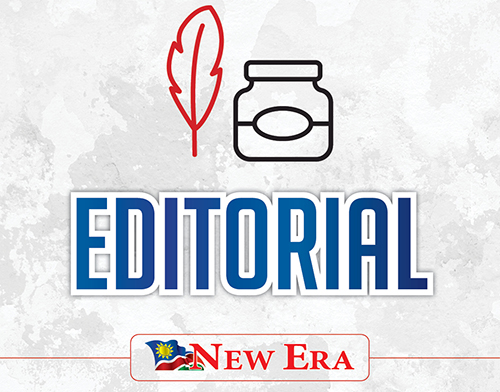The fact that the Electoral Commission of Namibia (ECN) was this week again caught in a controversy of its own making should make Namibians sit up and notice.
During meetings with the political liaison committee this week, the ECN provided an update on the procurement process for the ballot papers for the 2024 Presidential and National Assembly elections. According to the ECN, the ballot paper tenders were advertised through the International Open Bidding (IOB) process on 9 September 2024.
However, the ECN is now accused of trying to halt that procurement process and select a service provider of its choice. It is alleged that the ECN fears that ballots might not be printed on time for the crucial 27 November elections.
Namibia should be cautious about which international bidders are approached for this job. We should be under no illusion that free, fair and credible elections are central to legitimising governments, and that some of our neighbours and international partners might not be as committed to transparent, free, fair and legitimate elections. We therefore need to be cautious as to where we source these services from.
This country is renowned for peaceful transitions. These changes of power, when elections are free, fair and credible, minimise the risk of unrest or violence from dissatisfied voters or political parties.
The commission on Wednesday issued a statement to try and calm the mood of stakeholders and the public, saying: “There is no crisis in so far as the execution of the electoral calendar is concerned.”
The statement had to be issued after journalists complained bitterly about not being invited to a meeting between parties and the ECN.
While the ECN boasts several new commissioners and top management, the niggling questions remain, especially after a series of high-profile blunders, including the various court cases the commission lost recently.
Credibility and transparency should be the cornerstones on which electoral bodies build their operations, and with the ECN scrambling for the ballot printing tender at the 11th hour, it looks too much like an own goal, God forbid, something more sinister.
If the public asks, what were they doing for five years? Would they be justified?
The media plays a critical role in ensuring transparency and accountability in elections. Journalists complained that there is now a trend that the ECN engages the media in a less than welcoming manner.
This lack of transparency puts the commission’s modus operandi and activities in question.
This is dangerous.
The ECN cannot be found wanting in transparency and credibility.
Can the ECN provide details on their preferred bidders, and the specifics of how they are going to go about the procurement process and ensuring the safety and credibility of the process? The ECN must take the public into its confidence, and make this and every process as transparent as possible.
Transparency ensures the electoral process is open, reducing suspicions and accusations of manipulation and building public trust. An open and transparent ECN and its processes would prevent corruption and fraud that could undermine the democratic process.
When a party or candidate is elected through a fair and transparent process, it enhances the legitimacy of the winners, reducing post-election disputes and accusations of foul play.
While Namibia struggles with voter participation, running free, fair and credible elections transparently enhances participation, whereas tainted elections ruin the credibility and legitimacy of the winners, and puts question marks on the entire democratic process.
What has ECN to gain by enveloping this process in secrecy?


